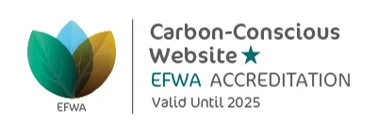You may have heard that Search Engine Optimisation (SEO) is dead. This is simply not true. What is true, however, is that SEO has changed considerably over the years and it is now more complex than it used to be.
Ten years ago, SEO was straightforward – chose a few keywords, use them frequently on your web pages and the chances were that you would rank well. The world of SEO has changed a great deal since then, mainly due to the increasing sophistication of the search engines.
Search engine optimization (SEO) is an essential part of a website’s design, and one all too often overlooked. The most beautiful, spectacular site in the world won’t do anyone much good if people can’t find it on Google (or Bing, or DuckDuckGo). - Frederick O’Brien
Where your pages appear in the search engine results, of course, still matters enormously. If your site is not ranking well for search phrases your target audience use, you are losing business to competitors.
The image below shows the search engine results for pilates-leeds.com, a site we designed, built and support. As you can see, we used the simple phrase “Pilates Leeds” as our search term and the site we created is at number 1. There is a reasonable amount of competition for this phrase as so the results here are excellent.

Search engine optimisation cannot be ignored. If your site is performing poorly, you are not getting a good return on the investment you have made in your web site.
When designing and building a new site, we carry out the necessary research to maximise search engine performance. If you already have a site that performs poorly in the search engines, the good news is that the performance can be improved.
A website without SEO is like a car with no gas – Paul Cookson
When we are asked to improve the search engine performance of a website, we start by understanding the business, its objectives and the target audience(s). We then perform a thorough audit of the website looking for ways it could be improved. Next, we produce a report detailing the actions that need to be taken to increase search engine ranking. We prioritise all the activities as some changes will have greater impact than others. Each activity is costed.
Discussions with the client usually result in us carrying out all the priority 1 actions. This is followed by a review after 3 months to assess the full impact of the changes. It may be that further changes are unnecessary at this stage or we may jointly decide to go ahead with the priority 2 actions and so on.

To give you an idea of some of the items we consider when carrying out an audit, we group them into three categories
- On page
- Off page
- Technical
I’ll give a few further details of each one below.
On Page SEO Factors
The main factors affecting on page optimisation are
- writing clear content which is relevant to the target audience(s)
- using internal links within your site
- using keywords and phrases in appropriate ways on the web pages.
Clearly, for the latter, thorough and detailed keyword research need to be conducted. This is not just about finding keywords your audience use, but must also look at the ability for your site to rank for those keywords. In addition, the number of searches for a given keyword must be assessed to make sure that keyword is worth ranking for. This all requires an organised and thorough approach which can take several weeks to complete. However, having a graded list of keywords helps, not only on the web pages, but also when writing blog articles and when posting on social media.
Off Page SEO Factors
This is mainly concerned with linking out to other sites and acquiring incoming links. Linking out is easy and should be done to useful resources external to your site. The acquisition of incoming links is less easy but can have a significant effect on ranking. However, links from dubious websites, purchased links and other inappropriate sources do not help and can cause your site to be penalised or, in extreme circumstances, banned from the search engines. Our analysis always examines the quality of the links to your website.
Technical SEO Factors
There are a great many factors under this category. Here are some of the main ones:
- site should be mobile friendly
- web pages should load quickly. This is a big area but the main culprit is slow loading is poorly optimised images
- Images should have SEO optimised alt tags and file names
- Pages should be marked up properly in the HTML
- All pages should have an H1 primary heading
- Addresses, phone numbers etc. should be marked as such so the search engines can understand their meaning
- Unnecessary pages should be removed from the search engine results
Summary
Do not ignore search engine optimisation otherwise your site will not get as many visitors as it could. Do not assume that just be writing good content you will gain lots of visitors to your site. Search engine optimisation is necessary and important in achieving the best return on the investment that you make in the web.
